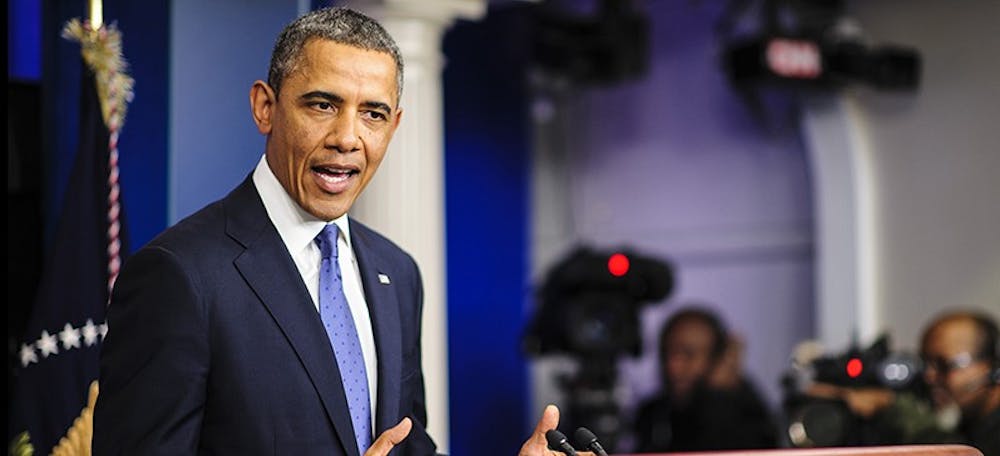In a period spanning nearly 220 years, the people of the United States elected 43 white men to lead the country. Then, in January of 2009, President Barack Obama’s election broke the mold.
With just a few months left in the first black president’s second term, pundits, historians and citizens are — more than ever before — considering Obama’s political legacy.
Some natural questions include, “Can we expect to see more elected candidates ruffling the traditional homogeneity?” and, “Did Obama achieve the ‘change’ that was the centerpiece of his campaign?” More subjectively, “Is the country in better or worse shape than before his inauguration?”
Though, coming to a reasonable conclusion for any of the above queries is no simple task, as political legacies are often realized decades after the close of a presidency.
Jason Husser, assistant professor of political science and policy studies, is not quick to attempt to predict the incumbent’s legacy.
“Presidential legacies are very difficult to predict accurately,” Husser said. “We don’t often know how a president will be remembered until many years after that person has left office.”
His opinion is consistent with those of professional historians, such as Pulitzer Prize-winning historian Gordon Wood.
In the New York Magazine article “53 Historians Weigh In on Barack Obama’s Legacy,” Wood was quoted saying, “We live in a fog, and historians decades from now will tell their society what was happening in 2014. But we don’t know the future. No one in 1952, for example, could have predicted the reputation of Truman a half-century or so later.”
The majority of Americans are not convinced his legacy will be positive in years to come.
According to a Pew Research Center survey released in mid-January, 51 percent of those surveyed believe the Obama Administration’s failures will outweigh its accomplishments.
The same survey found that when given the option of answering, “It’s too early to tell,” 26 percent of those surveyed chose that response.
Husser said it is difficult to determine if the country is “better or worse” than before Obama first took office.
“No unified, objective answer exists about whether the country is clearly better or worse off after Obama’s term,” Husser said. Whether the country is better or worse off after eight years is highly subjective and dependent on one’s set of value priorities. Supporters of the president will highlight many key accomplishments. Obama’s detractors also have areas of criticism.”
Dissection of the national racial climate was a natural byproduct of being the first African-American president, leading to efforts in bridging social and economic inequities between groups.
Yet, according to a Rasmussen Report’s article titled “Has Obama Widened the Racial Divide?” only 20 percent of likely U.S. voters believe Obama has brought U.S. citizens of different races closer together. Forty-seven percent think Obama has driven those of different races further apart.
Patheos.com, a nondenominational, nonpartisan online media company purposed for religious perspective commentary, features the blog of Rebecca Peters, professor of religious studies.
In a recent post titled, “In My Words: The threat of Obama,” Peters examined the historical context for animosity toward President Barack Obama. Race, as Peters noted, is a common point of attack.
“They [the attacks] have focused on his birthplace and citizenship. On his religion. On his race. Opposition to his policies in Congress have gone beyond political disagreements,” Peters wrote.
When interviewed, Peters said she was deeply disturbed by the mistreatment and disrespect the incumbent has become accustomed to.
“The issues over his legitimacy are unprecedented,” Peters said. “The only way I read it is because of race, and I think race plays a tremendous role in how people have received it [his presidency].”
Peters hopes for a day when race and gender are not considered the most perceivable characteristics of a presidential candidate.
But Peters also knows these are changes that come with time and familiarity.
“I hope that there will be a time when Obama isn’t black first, or a Hillary isn’t a woman first. I feel that through continued breaking of the status quo, there will be a day when people see them as they do other candidates — as politicians first.”


